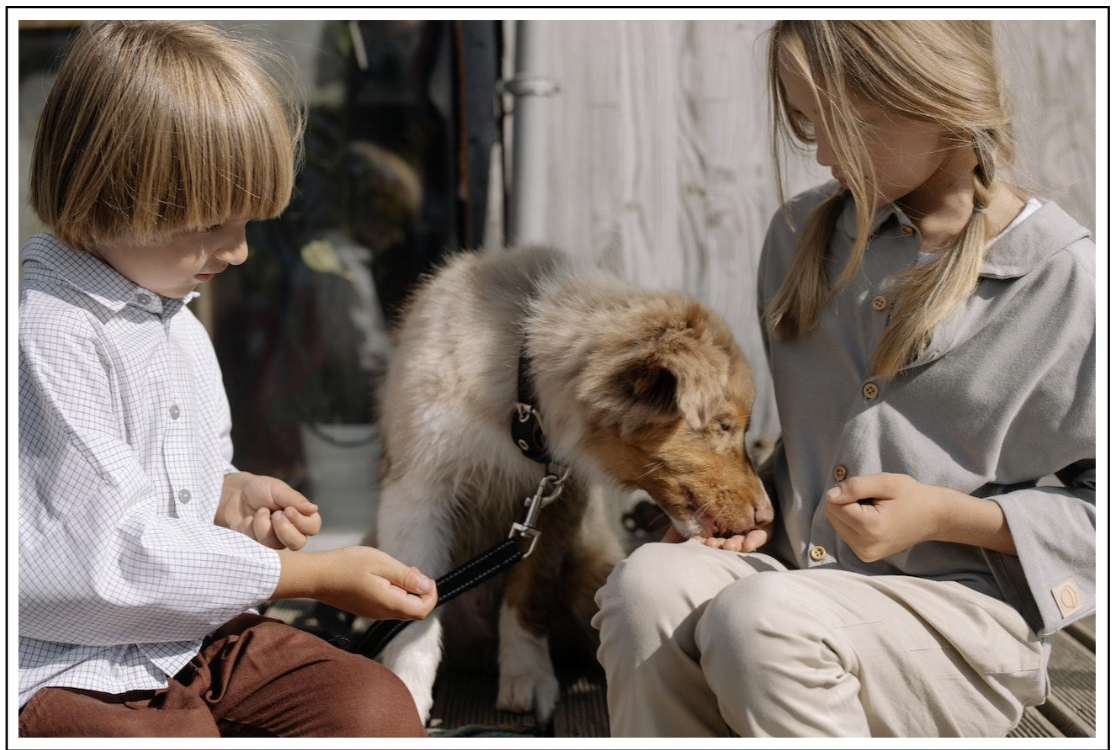Considerations When Adopting a Pet For Your Child

Most parents can relate to the experience of their child pleading for a pet. Although some parents worry about the inevitable responsibilities and inconveniences that may fall on them as a result of giving into these pleas, there are certainly some strong arguments in favor of adopting an animal, too. Experiences with a pet can help your child in their development to be a caring human being. Not to mention that animal ownership can be a tool to teach responsibility.
Yet, pet adoption shouldn’t be a decision you make lightly. You’ll be bringing another living being into your home, after all. This requires some careful forethought to ensure positive outcomes for you all.
Let’s dive into a few of the main considerations when adopting a pet for your child.
Financial Elements
The idea of adopting a pet for your child can be exciting for everyone involved. After all, you’re providing a companion your child may grow close to for years to come. However, it’s important not to let these emotional elements override the often challenging practical considerations. One of the most important to look at here is whether your family can afford a pet.
This isn’t just about the initial adoption fees. Firstly, you’ll need to purchase a range of items for the animal’s comfort. This is likely to include a bed and food bowls. They’ll also need tools for enrichment indoors, such as toys for dogs or a climbing apparatus for cats. You’ll also be adding high-quality pet food to your monthly grocery store budget. These elements can get pricey, with the estimated cost of caring for a dog in their first year sitting at around $405–$2,200.
Alongside this, it’s important to understand that pet healthcare is expensive. Getting adequate insurance is a vital step to ensuring an animal can get the medical care they need. If you aren’t able to afford these regular payments, it may be wise to hold off getting a pet for a while. After all, it's not fair for anyone involved to have to choose between your pets' health and your finances.
Space Availability
One of the key considerations, before you adopt a pet for your child, is whether you have enough space in your home. With smaller animals, this may be a little easier. After all, a hamster or bird cage might fit into your child’s bedroom. But it’s important both for the welfare of the animal and the safety of your home to pay close attention here.
Make sure that there is enough room in the home for the animal to exercise and sleep. Particularly with dogs and cats, it isn’t fair or healthy to confine them to just one or two small rooms. Indeed, they may experience stress if they’re kept in too confined of an area. As such, it’s vital to review the size of your home and make mindful choices on the type and size of animal that could thrive in the environment.
In addition, you can pretty much guarantee that your child will play with their new pet indoors. You need to establish whether there is room to do this without your pet or your child experiencing injury or causing destruction. You may need to rearrange some furniture or fasten large items securely to the walls to prevent the risk of toppling during rambunctious play.
Health Aspects
Health is a frequently overlooked practical consideration of getting a pet for a child. This isn’t just about paying vet bills. There are aspects that pertain to both your child’s wellness and that of the animal that you should plan for in advance.
The first consideration is whether your child or any other family member experiences animal allergies. The last thing you want is to find you must return your child’s adopted animal to a shelter because their presence caused health issues. Getting an allergy test from your doctor may be a wise step. But even having all members of your family spend time with potential adoptees at the shelter could highlight potential challenges.
In many cases, you’ll find that there are significant health benefits to having a pet. Walking a dog promotes exercise and an animal’s presence can ease anxiety. Yet, it’s important to recognize that a pet has health needs too. Depending on your child’s age they may not yet be able to take care of these. As such, it’s important to establish who in your family has the responsibility for taking the pet for walks, feeding them, and monitoring their overall wellness. It's also valuable to learn more about your pet. If you have a dog, you can refer to resources like woofwhiskers.com. Considering this in advance can reduce complications down the line.
Conclusion
Before you adopt a pet for your child, it’s important to consider a range of elements. You should gain clarity on whether you can afford to pay for their ongoing care and any medical treatment. It’s also worth reviewing your home to establish what size and type of pet you have space for. You should also take the time to understand the potential health implications of bringing a pet into your home and how you can navigate these. By preparing effectively, you can make the most appropriate decisions for your child, the pet, and your family.






